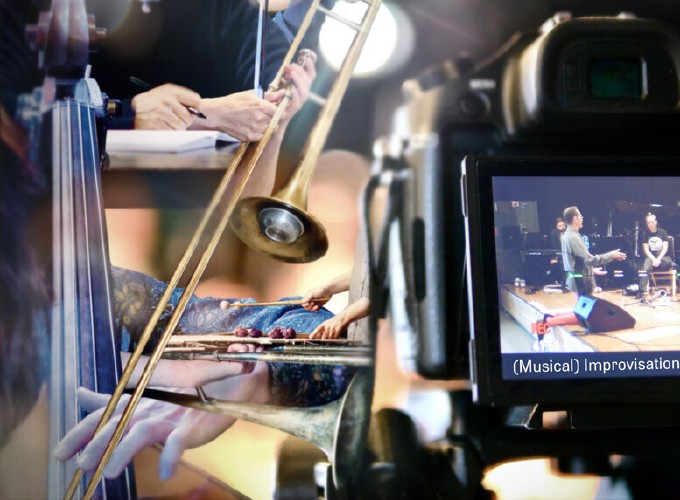‘(Musical) Improvisation and Ethics’ is an interdisciplinary, practice-oriented research project funded by the Austrian Science fund (FWF, grant ZK93). Over four years, anthropologist Caroline Gatt, philosopher Joshua Bergamin, and Christopher A. Williams will investigate the improvised nature of ethical behavior, using live encounters with musical ensembles as case studies.
Improvisation and ethics are everywhere. People improvise in so many practices – from cooking to sports to migration policy – that it often goes unnoticed. The same is true of ethics; as self-interpreting animals, humans reveal and develop ethical values in practices as diverse as democracy, empirical science, and punk rock.
But the role of improvisation within ethics is often overlooked. Instead, many people and institutions tend to characterize ethics as a matter of consciously, rationally adhering to known norms and rules. Disputes over the content of such rules manifest as the ideological tribalism of our era.
In this project, we pursue an alternative understanding of ethics as an ongoing process. We take as our starting point an understanding of this process as a combination of habitual actions and the spontaneous refinement of those very actions, all driven by a sensitivity to social and environmental context: in a word, improvisation.
To test and develop this idea, we will engage with a practice in which improvisational qualities of ethics are unmistakable: experimental improvised music. The framework is a series of seven, 10-day-long sessions – a ‘musical ethics laboratory’ (Lab) – in collaboration with three leading improvising ensembles: the Splitter Orchester (Berlin), the Trondheim Jazz Orchestra (Norway), and the klingt collective (Vienna). Each ensemble will first participate alone, then in subsequent Labs with each of the others in turn, and finally all together.
In the Lab, musical ensembles improvise with and against given situations, structures, and interventions, in private and public settings. We will design the Lab collaboratively, drawing on our backgrounds in philosophy, anthropology, critical improvisation studies, and artistic research in music and theatre. Musicians will also shape the Lab, proposing their own ideas and reflecting on the work as it unfolds. We will interact with the musicians creatively, and through interviews and observation. Each session will result in public concerts and talks.
Our analysis of documentation from the Lab will focus on three things: (1) the evolution of musicians’ own materials and practical working methods; (2) their ‘improvising mindset’, including values, habits, and senses of self; and (3) the way they attend to each other and to other-than-human elements in their environments. This analysis will both inform future Lab sessions and ground a new, holistic conceptual framework for understanding the ethical significance of improvisation across a range of human activity. We hope this framework will be of interest to artists, scholars, and lay people alike.
The project is based at the Doctoral School for Artistic Research at the University of Music and Performing Arts Graz, the Institute of Cultural Anthropology and European Ethnology at University of Graz, and the Department of Philosophy at the the University of Vienna.
